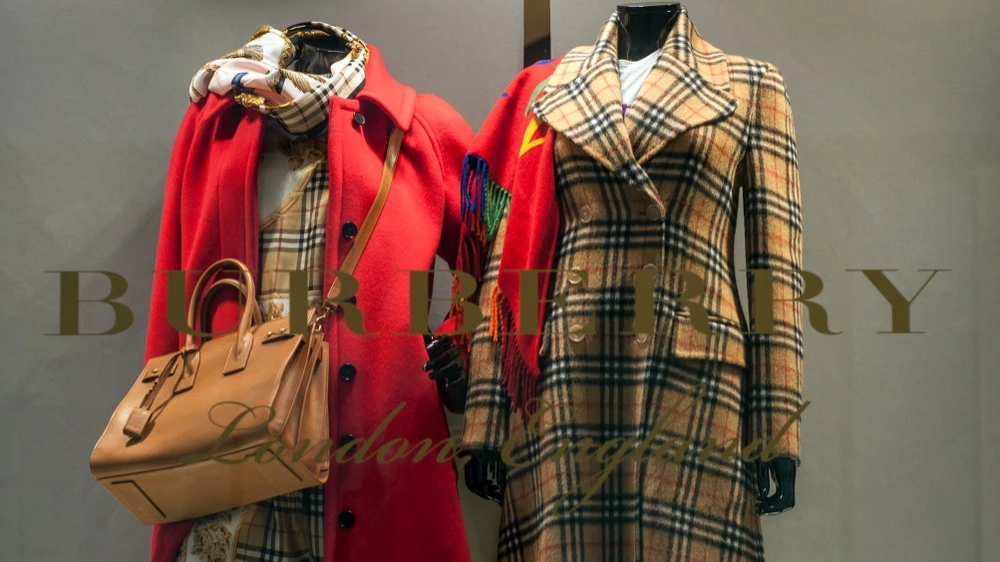Burberry has recorded another decline in sales. Why did its shares soar in value?
Despite the first signs of stabilization, it is not yet possible to talk about the recovery of the luxury sector, says Mario Ortelli, managing director of Ortelli & Co.

British fashion house Burberry, which is trying to get out of a prolonged slump, failed to get into the plus side of sales again last quarter. At the same time, the luxury clothing and accessories maker exceeded market expectations and showed investors new signs that its business is starting to gain momentum.
Details
Burberry's decline in comparable sales slowed from 6% in January-March to 1% in April-June, the company reported. Analysts surveyed by Bloomberg expected a 3.7% decline. The fashion house's revenue of £433 million last quarter was its best since the end of 2023, noted The Guardian.
Burberry's comparable sales in the Americas showed the strongest regional growth. They jumped 4% compared to the consensus forecast of 0.8%. The company attributed this to the addition of new customers. EMEIA (Europe, Middle East, India and Africa) region store revenue increased 1% due to higher spending by local shoppers, which helped offset lower travel spending. The figure fell 5% in mainland China and 4% in the rest of Asia, where growth in South Korea failed to fully offset weaker demand in Japan.
Burberry CEO Joshua Shulman said that when he joined the company a year ago, he could not have imagined "this kind of progress." "We are very pleased with the sequential improvement in performance across regions, especially the shift to positive momentum in EMEIA and the Americas, and are optimistic about the quarters ahead," said Shulman. Chief financial officer Kate Ferry emphasized that China is still a "very important market" for Burberry, which now accounts for about 30 percent of its global sales. She said that despite the challenging customer traffic situation, conversion rates have improved, reported Vogue.
Burberry shares in London soared by 6.5%. Since the beginning of the year they have risen by 27% (by the close of trading on July 17). Despite this, stock analysts on average treat them neutral (Hold rating).
What the analysts are saying
Burberry's performance improved for the third consecutive quarter following the launch of Shulman's recovery strategy - which could mean comparable sales will enter the plus side as early as the current quarter, Citi said. "In a quarter marked by continued macroeconomic and geopolitical challenges, as well as lower travel spending in Europe and Japan, Burberry posted a stronger performance than its peers," quoted by Reuters in a research note from Citi.
In May, Burberry announced it was cutting 20% of its staff - 1,700 jobs - as part of a cost-cutting program. Today, Burberry's management announced that it plans to achieve annual savings of £80 million by the end of fiscal 2026.
What to expect from the industry
Burberry and the industry as a whole are facing a massive downturn in luxury demand following the pandemic boom. The second quarter of 2025 is another test of luxury manufacturers' mettle. According to HSBC's estimate, sales in the April-June period are expected to decline 1.7% after the industry recorded a modest 0.2% increase in the first quarter.
At the same time, the gap between the key players in the luxury market is widening. "I expect Hermes and Richemont to maintain their leadership, while LVMH will continue to lag behind," says Bernstein analyst Luca Solka. He doesn't expect good news from Kering - sales of its flagship Gucci brand plummeted by 25% in the first quarter.
"The overall situation is still quite challenging for the luxury sector," says HSBC managing director Erwan Rambour. - The backdrop is also tense right now because of trade conflicts and duties, but it is exacerbated by the mistakes of the brands themselves: greed-flation, lack of innovation, general complacency. There was less of this in 2008. Rambour expects the luxury segment to show "less weak" results in the second half of the year - thanks to a lower comparison base from the third quarter onwards - and predicts zero organic growth for luxury manufacturers in 2025.
"In the second half of the year, the first signs of stabilization will start to appear here and there," said Ortelli & Co managing director Mario Ortelli to Vogue. - But to talk about recovery, let's revisit this conversation in six months' time."
This article was AI-translated and verified by a human editor
